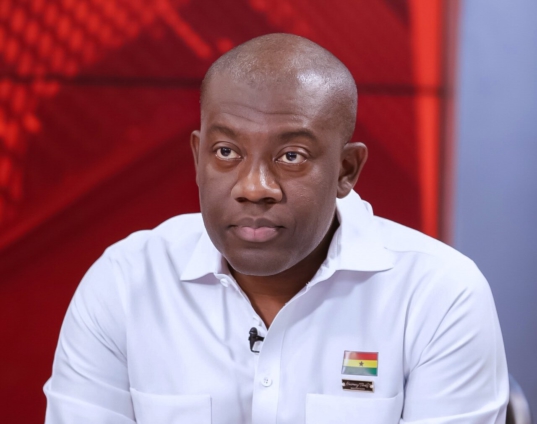Information Minister, Kojo Oppong Nkrumah has explained some key measures government intends to adopt to improve the economy beyond seeking economic support from the International Monetary Fund (IMF).
In an interview on The Probe, Sunday, the Minister outlined the Balance of Payment (BOP) support, domestic resource mobilisation and extensive collaboration with industries and other private sector players as the measures likely to improve the country’s economy.
According to him, this trio will help the government to better respond to the current economic crisis as the IMF engagement happens on the sidelines.
“BOP support which is only a limited window of support for a particular purpose. Domestic resource mobilisation ensuring that we are able to move from just about 12 percent of GDP that we are contributing so that my brother can get his allowance.
“A broader economic challenge that also requires a deeper collaboration with industries and other private sector players who have some capital to find more space to operate and as they operate and there is more productivity we get back into the national curtain,” he said.
Responding to why government will not scrap the E-levy even if the IMF provides economic support, Kojo Oppong Nkrumah said government needs “to mobilise some more domestic resources” to respond to the economic crisis. Hence, not prudent for the government to scrap the levy.
Meanwhile, the Ofoase Ayirebi lawmaker says government is likely to receive about $2 billion from the International Monetary Fund (IMF) after deliberations on a specific support package are concluded.
He stated that considering Ghana’s quota and macroeconomic data, it is possible for the country to get that money to help shore up its reserves.
“Already, you recall that the Finance Minister initially indicated that there were arrangements to get about $2 billion, out of which there is $1 billion available. Parliament has to approve for us to receive so that the cedi does not depreciate further.
“We have a shore up of our reserves to be able to meet the liquidity and debt servicing obligations even as our domestic measures will get better. You have the window to start talking to the Fund.
“Today [Sunday, July 3], I saw a document that said looking at Ghana’s quota and our macroeconomic data, we could get anything, maybe around $2 billion to help shore up what we are looking for,” he told host, Emefa Apawu.
Latest Stories
-
Alan promises to amend the Constitution to limit presidential powers
7 mins -
Ghana to face liquidity pressures in 2025, 2026 despite restructuring most of its debt – Fitch
10 mins -
NPP’s record of delivering on promises is unmatched – Bawumia
11 mins -
Mahama: It’s time to dismiss the incompetent NPP government
13 mins -
Today’s front pages: Monday, November 25, 2024
27 mins -
T-bill auction: Government misses target again; interest rates continue to rise
29 mins -
We have a bad technical team; Otto Addo and his team should go – Ernest Thompson
2 hours -
Hindsight: Why Accra Lions’ present problems do not define them
2 hours -
10-year-old Lisa Laryea arrives at Wits Donald Gordon Hospital in South Africa for bone marrow transplant
3 hours -
23 ambassadors inducted to take on 2025 GSTEP Challenge in three regions
3 hours -
Ghana Shea Workers Union inaugurated
3 hours -
Microsoft 365 under attack – how to bulletproof your business against cyber threats
3 hours -
I trust Bawumia; he has never lied to me – Akufo-Addo
3 hours -
Bawumia is hardworking; offers the youth platform to share ideas – Kow Essuman
3 hours -
IGP, Police commanders worship with churches in Ghana as part of security arrangements for 2024 elections
4 hours

